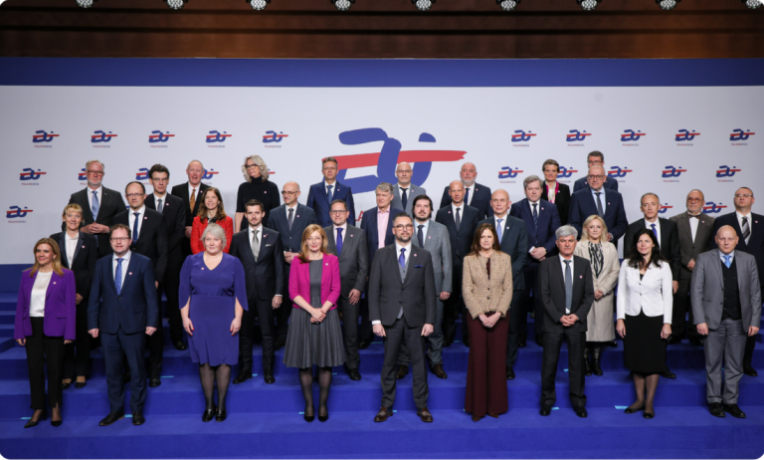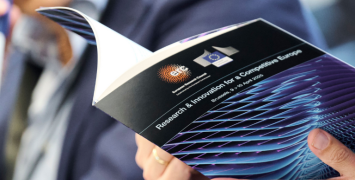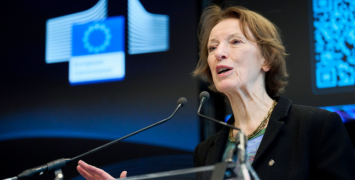Europe’s path to competitiveness: The strategic role of research and innovation

By Andrzej Szeptycki
In recent decades, the European Union has made significant strides in fostering research and innovation. Despite this progress, the EU’s overall competitiveness in these domains still lags behind that of global leaders such as the United States and China. The gap is particularly evident in investment levels and the commercialisation of new technologies, which remain critical for economic growth and technological sovereignty.
Rethinking Horizon Europe
The Horizon Europe programme stands as the EU’s flagship initiative for supporting large-scale international research cooperation. Its design enables Europe to address complex, transnational challenges by pooling resources and expertise from across the continent. However, the mid-term evaluation of Horizon Europe, conducted under the Polish Presidency of the EU Council, highlighted several areas in need of improvement. These include the necessity for better coordination, simpler administrative procedures, and, crucially, increased funding. The call for a substantial boost in financial resources is a central tenet of the Warsaw Declaration, adopted in March 2025.
The evaluation also underscored the strategic importance of research and innovation in securing the EU’s long-term competitiveness. European universities and research institutions consistently rank among the world’s best, upholding the continent’s reputation for scientific excellence. Yet, as technological progress accelerates, the ability to translate research into economic and societal benefits becomes ever more vital.
Key priorities identified by EU Member States include strengthening the role of Horizon Europe, simplifying programme structures, ensuring balanced participation among countries, and enhancing the effectiveness of EU missions. There is also a growing emphasis on commercialising research outcomes, supporting talent development, and fostering a resilient research ecosystem that can create high-quality jobs in the R&D sector.
The future of EU research and innovation
Compared to the US and China, Europe invests significantly less in research and development, a shortfall that undermines its technological position. This issue was highlighted in reports by Mario Draghi, Enrico Letta, and the High-Level Group led by Manuel Heitor, all of which advocate for a marked increase in annual R&D investments. The Polish Presidency initiated a broad political debate on the strategic role of the next EU Framework Programme for Research and Innovation (FP10), emphasising its potential to reinforce the EU’s competitive edge, economic resilience, and technological sovereignty.
Ministers responsible for research and innovation have reaffirmed that EU R&I policy, primarily implemented through framework programmes, is a cornerstone for strengthening the Union’s global standing. The importance of synergies between research and innovation policies and other EU and national strategies - such as industrial, climate, digital, and cohesion policies - was strongly emphasised. There is a consensus on the need to support both frontier research and innovation implementation, with particular attention to the roles of the European Research Council (ERC) and the European Innovation Council (EIC)
The ERC, with its rigorous standards, has become a symbol of scientific excellence in Europe. It not only supports ambitious research but also helps position Europe as a destination for world-class science. The future framework programme is expected to ensure balanced support for both cutting-edge research and practical innovation, while also fostering the development of research infrastructure and supporting startups and scaleups. Linking the framework programme more closely with the European Research Area (ERA) is seen as essential for strategic investment and policy coherence.
The evaluation of the previous Horizon 2020 programme demonstrates the tangible economic impact of EU research initiatives, with an estimated increase in EU GDP by € 429 billion by 2040 and the creation of 220 000 jobs. As Europe faces global challenges such as climate change, demographic shifts, and geopolitical instability, strengthening solidarity-based cooperation through scientific research becomes ever more crucial. Research not only addresses societal needs but also enhances the capacity of governments to respond to crises.
The Warsaw Declaration: A blueprint for the future
The adoption of the Warsaw Declaration during the Polish Presidency marked a pivotal moment in shaping the EU’s research and innovation agenda beyond 2027. The Declaration reaffirms the importance of maintaining independent, stand-alone framework programmes like Horizon Europe, which have been the backbone of EU support for scientific excellence, innovation, and transnational collaboration for over four decades. It also calls for a robust budget that matches the strategic significance of research and innovation, ensuring financial predictability and stability for the research community.
The Declaration emphasises the need to strengthen the competitiveness, security, resilience, and technological sovereignty of the EU. It advocates for the creation of strong, interdisciplinary, and international research networks, enhancing the European Research Area and making the EU a more attractive destination for top scientific talent. Diversity, equality, experimentation, and risk-taking are highlighted as essential values for the future R&I landscape. The independence and roles of key institutions such as the ERC and EIC are to be maintained and reinforced.
Driving innovation and growth
Recognising the pivotal role of startups and scaleups in boosting EU competitiveness, the Polish Presidency placed special focus on developing a European Strategy for Startups and Scaleups. The informal Competitiveness Council meeting in Warsaw in March 2025 centred on overcoming barriers that hinder the transformation of research results into market-ready products—a challenge often described as crossing the “two valleys of death”.
Key obstacles identified include underfunding of the EU venture capital market, especially for deep-tech and cross-border investments, regulatory fragmentation, and limited access to public procurement opportunities. Talent shortages in STEM fields and barriers to mobility further constrain the growth of innovative enterprises. The Presidency stressed the need for better coordination of support tools, improved access to infrastructure, and enhanced mentoring for startups and scaleups.
The future of European competitiveness hinges on the ability to bridge the gap between research and market, foster innovation across all regions, and create an environment where ambitious ideas can thrive. By implementing the strategic priorities outlined in the Warsaw Declaration and strengthening the ecosystem for startups and scaleups, the EU aims to secure its place as a global leader in research, innovation, and economic prosperity.

Andrzej Szeptycki is Deputy-Minister at the Polish Ministry of Science and Higher Education.




